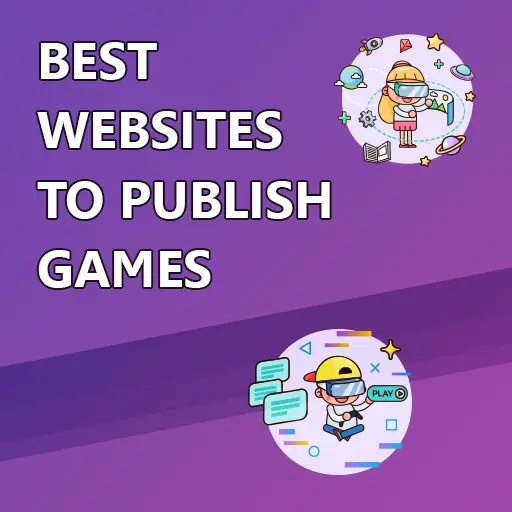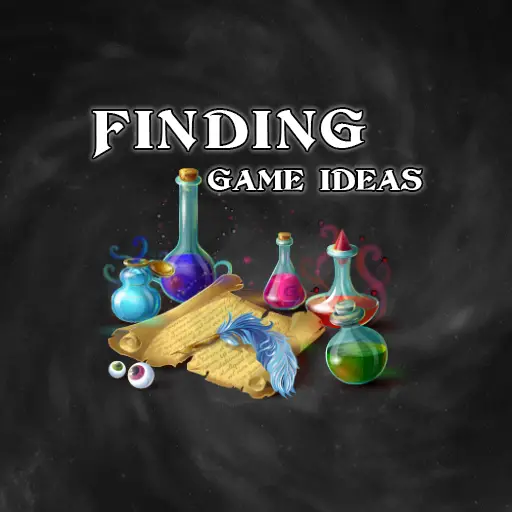The path of an indie game developer can be challenging, however, it doesn’t mean it is impossible to make a living off of it. With the right combination of creativity, hard work, and business savvy, you can turn your passion into a profitable career. There are several ways to monetize your games. I have divided them into two groups: while the game is in development and after the game is completed. This article is a short overview of the ways you could make money as an indie game developer.
Developing a whole game takes time, and you probably need cash to sustain your life. Let’s go over the things you could do to earn some money while developing your game.

1. Selling Game Assets
You probably already created some assets for your game, so why not sell them and make some money? Game assets could be any resource other developers and designers can use in their games, such as 2D sprites, animations, UI elements, 3D models, textures, sound effects, and music. Some platforms support more advanced assets like particle effects, materials, custom shaders for lighting, special effects, and sometimes whole projects. You can check out these websites:
- Unity Asset Store: https://assetstore.unity.com
- Unreal Engine Marketplace: https://www.unrealengine.com/marketplace
- itch.io: https://itch.io/game-assets
- GameDevMarket: https://www.gamedevmarket.net
- ArtStation: https://www.artstation.com
- GameArt2D: https://www.gameart2d.com
- OpenGameArt: https://opengameart.org
2. Securing Sponsorships
Securing sponsorships from companies, platforms, or individuals who will pay you in exchange for using their products, brands, or logos in your game requires reaching out to external parties and offering them a good deal. This will include a contract, so you will need to take care of the legal side of the transaction.
The sponsorship deal can come at a fixed or variable price, depending on the deal signed. It also depends on the size of your audience and how much time they spend playing your game. If you have a large audience for your games, you will earn nicely from sponsorships. However, it can be quite difficult to get a sponsor for a game that does not have many followers. Make sure your game has a large enough audience to attract enough sponsorships.
3. Raising Money From Crowdfunding
You can raise money from fans and supporters through crowdfunding platforms like Kickstarter, Indiegogo, or Patreon. Raising funds from the public will require some effort. Here is a brief overview of the general process:
- Create an account on your preferred platform. The platform can be Kickstarter, Indiegogo, or Patreon
- Create a plan for how you will develop your game. This includes writing a specific idea of the game with all the requirements, creating a budget, setting a funding goal, and preparing rewards for your supporters.
- Create your campaign. Film a short video clip where you explain your vision and how you plan to achieve it.
- Set your funding goal. Set the amout of money you would like to received for your project and start your campaign.
- Reach out to your fans. Reach them on social media, contant family and friends, and have conversations on forums, and promote your project.
- Give back to your supporters. Once you have raised the needed funds, you are encouraged to give the supporters some reward for backing you up.
Keep in mind that the platform will take around 5% commission on the funds you raised. In addition, you may have to pay commissions to the payment processor. If you want more information, there is a good article comparing these 3 platforms: https://press.farm/Kickstarter-vs-indiegogo-vs-patreon-crowdfunding-guide.
4. Signing a Contract With a Publisher
Signing a contract with a publisher who will pay you money upfront to develop and complete your game, and may provide additional developers or artists to help you. However, keep in mind that publishers will take a significant cut of the revenue, typically 20-50%. Finding a publisher who will fund your project will require you to do several things:
- Create a 15-30-minute demo of your game
- Create a website or some page (“Press Kit”) that will present your project: description, screenshots, trailer, plan, and schedule. The website will make you look professional and make publishers take you seriously, even if you don’t have a lot of experience in making games.
- Send personalized emails to as many publishers as you can. Statistically, you are likely to receive only a handful of responses.
- Once you find a publisher who likes your project and is ready to sign a contract, you will have to negotiate and agree upon the terms of the deal.
The second half of this article deals with strategies to make money with a completed game. So, congratulations on completing your game, now let’s see how you can monetize it.
5. Create and Sell Your Games
The most obvious one is to sell your game to people. Publish your game on large platforms such as Steam, Epic Games Store, or itch.io, and sell them at a fixed price. These platforms will expose your game to a large audience without additional advertising or marketing efforts. Keep in mind that these platforms will take a cut of your game’s revenue, typically 10-30%.
As a game developer, you are responsible for the content you distribute, which means you will have to handle various aspects of your business. This includes managing your finances, ensuring legal compliance, promoting your game through marketing channels beyond the platform you are publishing on, maintaining positive relationships with customers, and managing human resources if you have employees
To learn more about the best websites for publishing your games, go to my The Best Websites To Publish Games For Highest Exposure post.
6. In-app Purchases and Downloadable Content
In-app purchases allow players to buy things while playing the game to enhance the game experience. This could include game currency, items, game time, lives, extra levels, character enhancements, etc. You can also offer a free version of your game with the option to unlock premium content or features through purchases. This method is commonly used in mobile games.
If your game is mainly played on a PC, you can offer downloadable content to get the same effect as the in-app purchases. All you have to do is let your audience know they can download additional items for the game for a small price. You may find it beneficial to give away a free version of the game and charge for downloadable content since the free game experience and low prices of the extra items may attract more customers and reveal your game to more people.
7. Integrating Advertisements
Integrating advertisements in your game and receiving royalties when players watch or click them. This can be done through banner ads or video ads that players view to receive in-game rewards. Usually, it is implemented in mobile games. Making money through advertisements can be difficult, especially if you do not have a large audience. You will need a large fan base to get ad views that can help you make significant cash.
8. Licensing your game
Licensing your game to other companies, such as third-party developers, publishers, or studios that want to use your game’s code, art, or other assets in their projects. This is a great way to make money, as you get monthly or annual paychecks. The downside is you have to find such a company to license your game. You will need to contact many company representatives, developers, and influencers and pitch them your game. It may also take very long before you successfully land a client, so plan accordingly.
I suggest trying it once you have more experience and connections in the industry. If you are a beginner, stick to the easier ways to monetize your game.
Final Thoughts
Developing games profitably can be hard, so pick the easiest way for you to monetize your development efforts. Over time, you will start generating income from multiple sources. If you are a complete beginner, selling game assets would be the easiest way to start. If you want to learn more about game development, go to by blog at Night Quest Games Blog.
I hope you found this article helpful. I wish you success in your future projects.
If the information in this article was helpful to you, please consider supporting this blog through a donation. Your contributions are greatly appreciated and allow me to continue maintaining and developing this blog. Thank you!
Attributions
Image by upklyak on Freepik (Featured Image)
Image by pikisuperstar on Freepik (Introduction Image)



